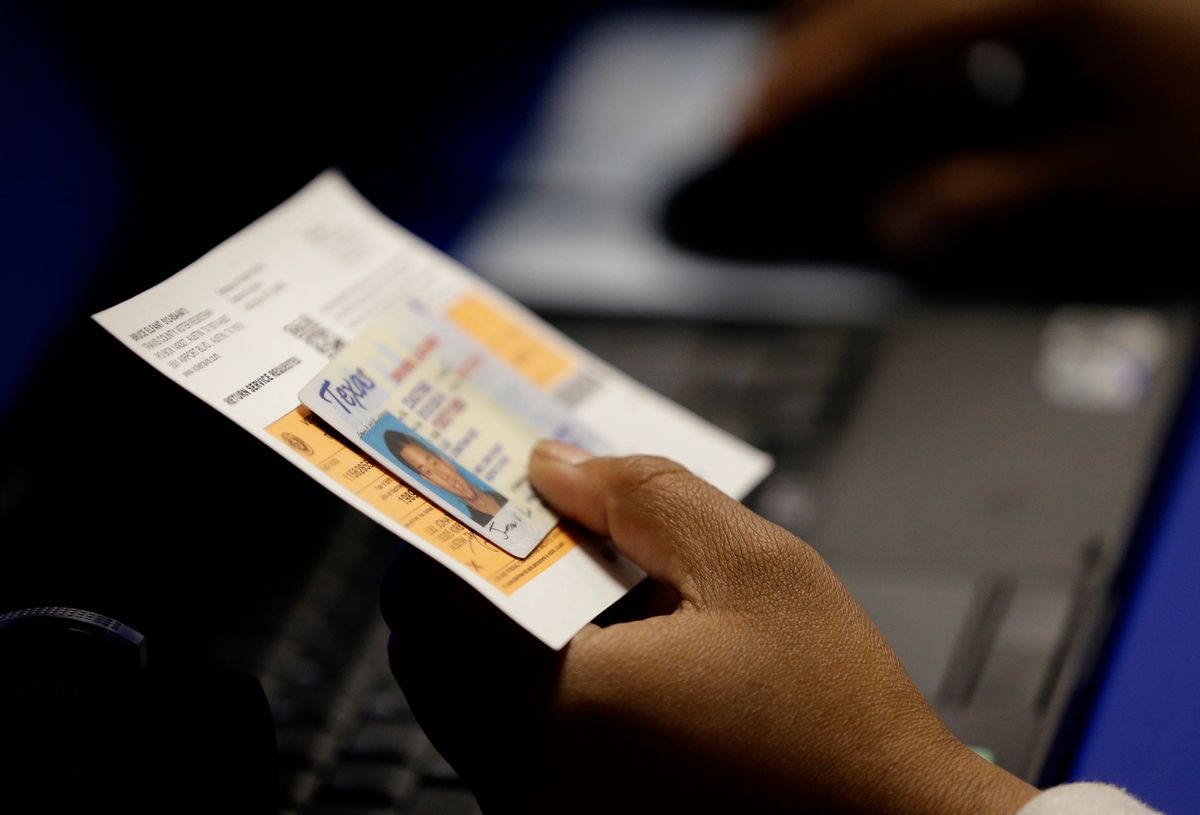A Texas voter ID law that faced a Justice Department discrimination lawsuit — at least, until it was dropped by Attorney General Jeff Sessions in February — is now yet another voter ID law that has been legally found to be racially discriminatory in intent.
U.S. District Judge Nelva Gonzalez Ramos upheld an appeals court last year which found that a 2011 voter ID law in the state disproportionately impacted voters from racial minority backgrounds. The law "establishes that a discriminatory purpose was at least one of the substantial or motivating factors behind passage," Ramos wrote in her decision, adding that "the terms of the bill were unduly strict." She concluded that the law met the Supreme Court's standard for proof that a law was motivated by an intent to discriminate, namely that it established a pattern which could not be logically explained except through racial grounds.
"This is a good ruling that confirms what we have long known, that Texas' voter ID law stands as one of the most discriminatory voting restrictions of its kind," said Kristen Clarke, president of the Lawyers' Committee for Civil Rights Under Law, who was one of the plaintiffs.
Despite facing a number of legal challenges, the voter ID law has been implemented since 2011. Voter ID laws are also believed to have played a role in Hillary Clinton's loss to Donald Trump in the 2016 presidential election by decreasing turnout — particularly in crucial swing states like Wisconsin.
In February the Associated Press found that there were at least 20 efforts by Republicans in states throughout the country to increase restrictions on voting.

Shares